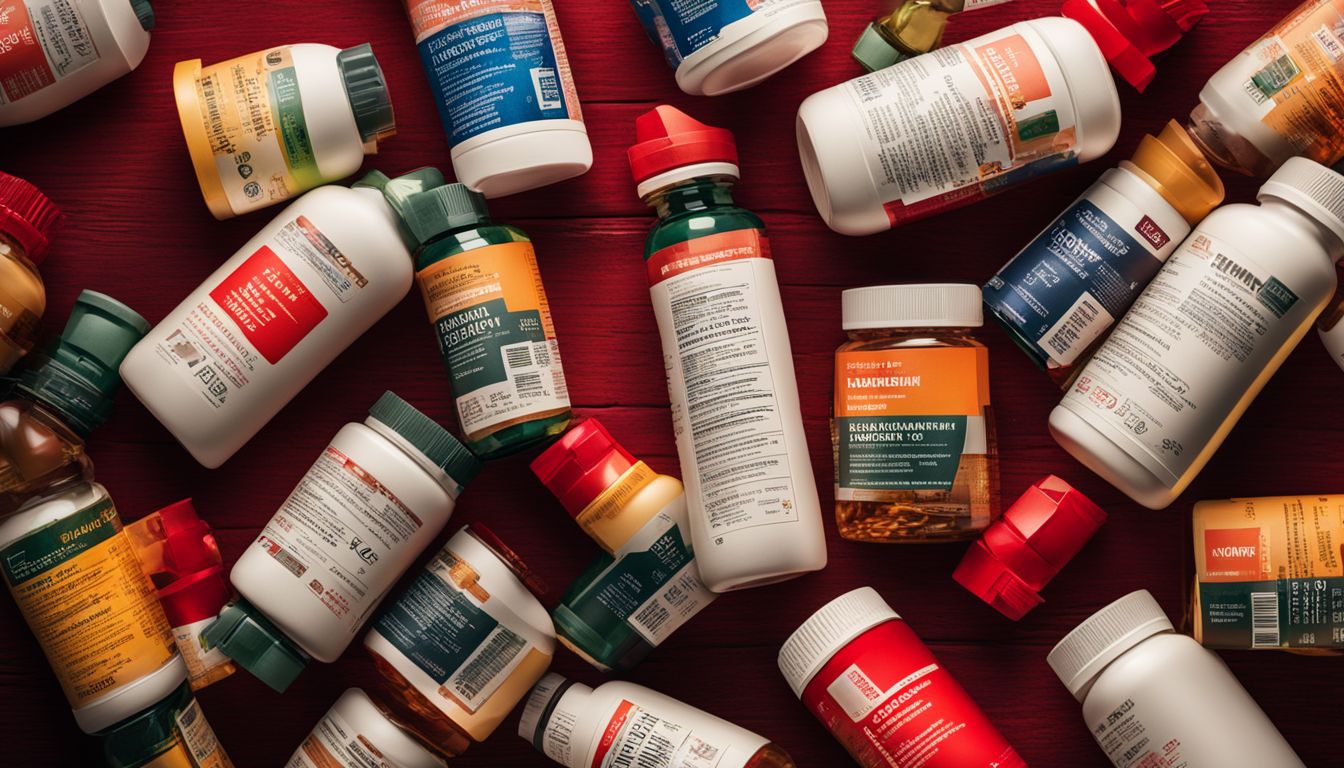This Is The Biggest Red Flag In A Multivitamin You Shouldn’t Ignore
Choosing the right multivitamin can be a daunting task, especially with so many options on the market. However, a common issue often overlooked is that most multivitamins are not subject to regulation by the U.S. Food and Drug Administration (FDA), which could pose serious health risks.
This article aims to shed light on this major red flag in multivitamins you shouldn’t ignore, discussing potential consequences of doing so while offering guidance for selecting safe and effective alternatives.
Ready for healthier choices? Let’s get started!
Key Takeaways
- Many multivitamins are not regulated by the FDA, so it’s important to be cautious when choosing one.
- The biggest red flag in a multivitamin is if no one checks them and the label doesn’t provide information about how much of each vitamin you’re getting.
- Ignoring this red flag can lead to potential consequences like overdosing on vitamins, interactions with medication, and missing out on essential nutrients.
Biggest Red Flag in Multivitamins That You Shouldn’t Ignore
The biggest red flag in a multivitamin is no one checks them. The U.S. Food and Drug Administration (FDA) does not check them. This means some multivitamins may not be safe or work well.
Another worry is if the label does not tell you how much of each vitamin you get. Sometimes labels make claims that mean nothing or are false.
Multivitamins can say they treat or cure health problems but this could be a lie, it’s yet another red flag to watch out for. You should also look at their price, good vitamins don’t need to cost too much money.
So, look out for these warning signs before buying any multivitamin!
Potential Consequences of Ignoring the Red Flag
Ignoring the red flag in a multivitamin can have serious consequences for your health. One potential consequence is an increased risk of overdosing on vitamins. Without proper regulation, it’s difficult to know exactly how much of each vitamin and mineral is in a multivitamin.
Taking too much of certain vitamins can lead to harmful effects on your body.
Another potential consequence is the interaction between multivitamins and medication. Some vitamins and minerals can interfere with the effectiveness of certain medications or even cause adverse reactions.
It’s important to consult with your healthcare provider before starting any new supplements, especially if you’re taking medication.
Additionally, ignoring the red flag could mean missing out on important nutrients that are essential for your overall health. For example, vitamin D deficiency is common among many people, but it plays a crucial role in bone health and immune function.
If your multivitamin doesn’t contain enough vitamin D or other essential nutrients, you may be putting yourself at risk for deficiencies.
In conclusion, not paying attention to the red flags in a multivitamin can have serious implications for your health. It’s important to be informed about what you’re taking and consult with professionals when necessary to ensure that you’re getting safe and effective supplementation that meets your individual needs without risking harm or imbalances in your body.
Best Multivitamins on the Market that Meet Your Health Needs
When it comes to selecting the best multivitamins on the market, you need to be cautious and informed. Here are some top-rated multivitamins that have passed through some level of quality checks, have clear labeling, and meet your health needs.
| Name | Price | Quality Check | Labeling | Special Features |
|---|---|---|---|---|
| Ritual Essential for Women | Affordable | Undergoes third-party testing | Clear and honest | Designed specifically for women’s health. |
| Thorne Basic Nutrients 2/Day | Premium | Tested for over 700 contaminants | Detailed and comprehensive | Provides all essential nutrients |
| Nature Made Multi Complete | Affordable | USP Verified | Full disclosure | Provides 23 key nutrients |
| Performance Lab NutriGenesis Multi for Men | Premium | Verified for purity and potency | Transparent | Optimized for male health |
| Garden of Life Vitamin Code for Women | Mid-range | Non-GMO Project Verified | Unambiguous | Designed for women’s health with added antioxidants |
Remember, the most expensive isn’t always the best. Check for quality, labeling, and your specific health needs when selecting a multivitamin.
Tips for Taking Multivitamins Safely and Effectively
- Check the labels: Look for the amount of each vitamin or mineral in the supplement.
- Follow the recommended dosage: Take only the amount specified on the label.
- Don’t double up: Avoid taking multiple multivitamins at once to prevent overdosing.
- Be aware of interactions: Talk to your doctor or pharmacist about any medications you are taking, as they may interact with your multivitamin.
- Take with food: Some vitamins are better absorbed when taken with a meal.
Conclusion
In conclusion, the biggest red flag in a multivitamin is the lack of regulatory oversight. Ignoring this can have serious consequences for your health, such as overdosing or interactions with medication.
When choosing a multivitamin, be cautious and informed to ensure its safety and effectiveness.
FAQs
1. What is the biggest red flag in a multivitamin that I shouldn’t ignore?
The biggest red flag in a multivitamin that you shouldn’t ignore is the absence of third-party testing or quality certifications.
2. Why is third-party testing important for multivitamins?
Third-party testing is important for multivitamins because it ensures that the product has been independently verified for quality, purity, and accuracy of ingredient labeling.
3. How can I know if a multivitamin has undergone third-party testing?
You can know if a multivitamin has undergone third-party testing by looking for certifications from reputable organizations such as USP (United States Pharmacopeia), NSF International, or ConsumerLab.com on the product label or website.
4. Are all multivitamins without third-party testing bad?
Not all multivitamins without third-party testing are necessarily bad, but it’s generally recommended to choose ones that have undergone independent verification to ensure their safety and efficacy.











